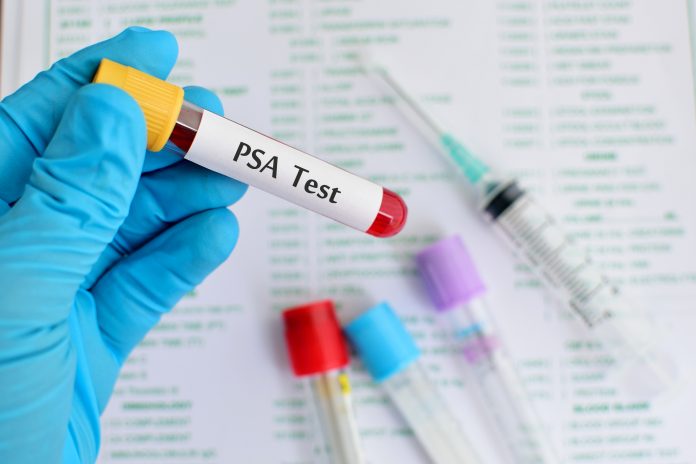
While it is well documented that Black men in the United States are more likely to develop prostate cancer than White men and have more advanced disease at diagnosis than their White counterparts, limited data is available to help guide prostate-specific antigen (PSA) testing for this at-risk population. Now, new research using patient records from the U.S. Department of Veterans Affairs (VA) shows that Black men are more likely than White men to have prostate cancer at the same PSA level. This data should help doctors adopt a PSA screening approach for Black men earlier, and alert them to refer these patients for additional screening at lower PSA levels.
The findings are reported online in Cancer, the journal of the American Cancer Society.
“These findings suggest that to reduce health disparities for veterans in the prevention of prostate cancer, clinicians should consider an individual veteran’s risk for prostate cancer including factors such as race and age,” said the study’s first author Kyung Min Lee, PhD, of the VA Informatics and Computing Infrastructure (VINCI), located within the VA Salt Lake City Health Care System. “Clinicians may consider earlier screening for populations at greater than average risk, which includes Black men,” Lee added.
For this research, Lee and team used multivariable logistic regression models that were estimated to predict the likelihood of prostate cancer diagnosis on first biopsy for 75,295 Black and 207,658 White male veterans, who are receiving care through the VA Health System. Data shows that prostate cancer was detected from the first biopsy in 55% of Black men compared with 43% of White men. After adjusting the data for competing factors, the researchers determined that Black veterans were 50% more likely to receive a positive diagnosis of cancer after their first biopsy than White veterans.
For example, the investigators discovered that Black men with a pre-biopsy PSA level of 4.0 ng/mL had a 49% risk of prostate cancer while White men at the same PSA level had only a 39% chance of having the disease. Further, the risk level for Black men having cancer at the 4.0 ng/mL level was equivalent to the risk level for white men with a much higher PSA reading of 13.4 ng/mL.
Jane Kim, MD, the executive director for preventative medicine at the VA said the agency recommends that for men aged 55–69, the decision whether to initiate or continue prostate cancer screening should be individualized.
“This includes consideration of age, family history, race/ethnicity, medical conditions, and patient values, as well as potential benefits versus harms,” Kim said. “Per the U.S. Preventive Services Task Force, before deciding whether to be screened, men should have an opportunity to discuss the benefits and harms of screening through shared decision making with their clinicians.”
The VA Office of Research & Development is now building on these latest findings launching the Prostate Cancer, Genetic Risk, and Equitable Screening Study (ProGRESS clinical trial). This prospective study will assess the risks and benefits of PSA biopsy thresholds based on patient race and genetic risk scores.











